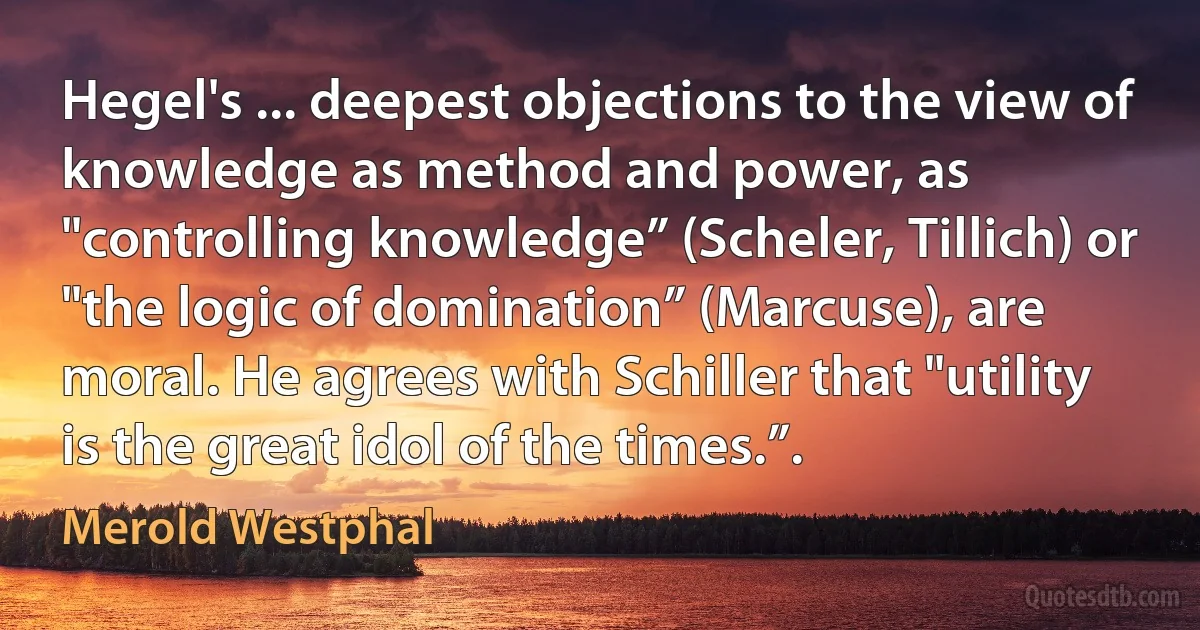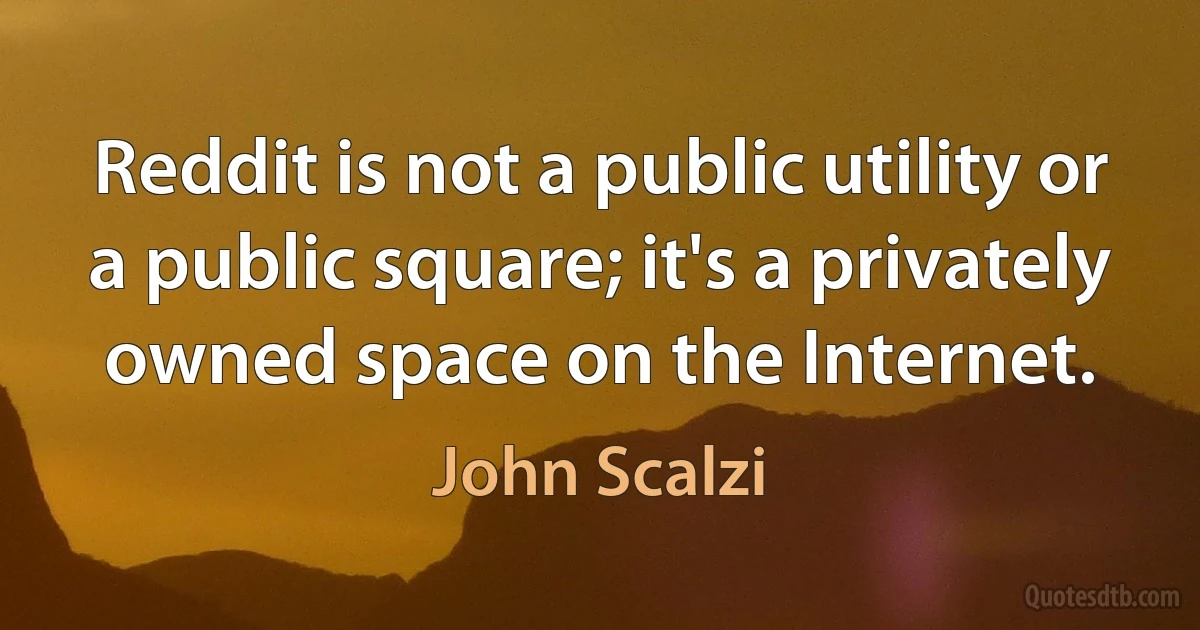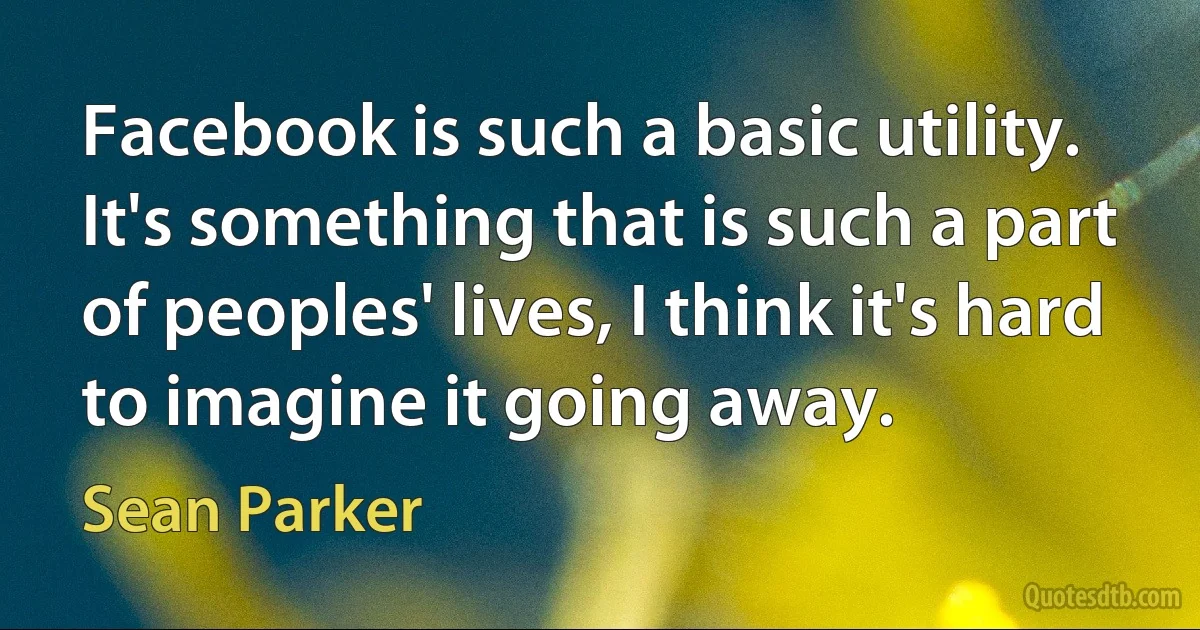Utility Quotes - page 8
Global rationality, the rationality of neoclassical theory, assumes that the decision maker has a comprehensive, consistent utility function, knows all the alternatives that are available for choice, can compute the expected value of utility associated with each alternative, and chooses the alternative that maximizes expected utility. Bounded rationality, a rationality that is consistent with our knowledge of actual human choice behavior, assumes that the decision maker must search for alternatives, has egregiously incomplete and inaccurate knowledge about the consequences of actions, and chooses actions that are expected to be satisfactory.

Herbert Simon
One day I saw the combative Giants shortstop Billy Jurges confront umpire George Magerkurth, on a call Jurges violently objected to, the two men standing jaw to jaw, raging invective at each other. A faint spray of saliva emitted from Magerkurth's mouth; Jurges stepped back and uncorked his own oyster of spittle, right in the umpire's face. Magerkurth slugged Jurges, who slugged him back, and the two men rolled on the infield grass, clawing at each other until they were pried apart. Jurges, of course, was tossed out of the game and suspended for a spell, his place at shortstop taken over by the mild-mannered prematurely gray utility infielder, Lou Chiozza. The very next day, Chiozza ran out to short left field, chasing a pop fly, while in rushed Joe Moore, from his left field post. The result was a noisy collision, which sent Chiozza to the hospital, marking the first and only time one player's spittle had broken another player's leg.

Arnold Hano
The poster first of all justified its existence on the grounds of utility, and should it further aspire to beauty of line and colour, may not our hoardings claim kinship with the galleries, and the designers of affiches pose proudly in the public eye as the masters of Holland Road or Bond Street Barbizon.

Aubrey Beardsley
The physiocrats started a train of thought which was a powerful stimulus to the development of a labour theory of value and surplus value. They did not, however develop such a theory of value themselves. What attention they gave to the problem of exchange-value and price produced results of an altogether different character. Thus while one of their contributions finds its continuation in Smith, Ricardo, and Marx, the other leads to the post-classical supply and demand and utility theories of value.

Eric Roll, Baron Roll of Ipsden
Because subjects like literature and art history have no obvious material pay-off, they tend to attract those who look askance at capitalist notions of utility. The idea of doing something purely for the delight of it has always rattled the grey-bearded guardians of the state. Sheer pointlessness has always been a deeply subversive affair.

Terry Eagleton
In all determinations of morality, this circumstance of public utility is ever principally in view; and wherever disputes arise, either in philosophy or common life, concerning the bounds of duty, the question cannot, by any means, be decided with greater certainty, than by ascertaining, on any side, the true interests of mankind.

David Hume
In all determinations of morality, this circumstance of public utility is ever principally in view; and wherever disputes arise, either in philosophy or common life, concerning the bounds of duty, the question cannot, by any means, be decided with greater certainty, than by ascertaining, on any side, the true interests of mankind. If any false opinion, embraced from appearances, has been found to prevail; as soon as farther experience and sounder reasoning have given us juster notions of human affairs, we retract our first sentiment, and adjust anew the boundaries of moral good and evil.

David Hume
The inflexible integrity of the moral code is, to me, the secret of the authority, the dignity, the utility of History.
If we may debase the currency for the sake of genius, or success, or rank, or reputation, we may debase it for the sake of a man's influence, of his religion, of his party, of the good cause which prospers by his credit and suffers by his disgrace. Then History ceases to be a science, an arbiter of controversy, a guide of the Wanderer, the upholder of that moral standard which the powers of earth and religion itself tend constantly to depress. It serves where it ought to reign; and it serves the worst cause better than the purest.

John W. Campbell
In the richest country in the history of the world, this Obama economy has crushed the middle class. Family income has fallen by $4,000, but health insurance premiums are higher, food prices are higher, utility bills are higher, and gasoline prices have doubled. Today more Americans wake up in poverty than ever before.

Mitt Romney



